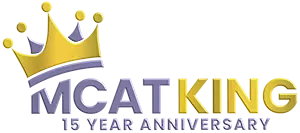How to Build a Strong Application for FlexMed

Home • How to Build a Strong Application for FlexMed
The FlexMed Program at the Icahn School of Medicine at Mount Sinai is unlike any other pathway to medical school in the country. It allows college sophomores to secure a seat at a top medical school without taking the MCAT and without completing the traditional pre-med checklist. In exchange, students are expected to demonstrate exceptional academic performance, strong leadership, meaningful service, and the intellectual curiosity that defines future physicians.
Because of these advantages, FlexMed is also one of the most competitive early assurance programs available. Each year, only a small percentage of applicants are accepted, and those who succeed do so not by chance, but by presenting a thoughtful, carefully crafted application.
This guide will show you how to build that kind of application. From academic strategy to essays, leadership experience to letters of recommendation, you will learn what makes an applicant stand out and how to position yourself as a strong candidate for this highly selective program.
Admissions Criteria and Evaluation Framework
Before building your application, understand what the admissions committee is looking for. FlexMed admissions are holistic, meaning every part of your application is carefully weighed. Reviewers evaluate:
- Academic record (GPA and rigor of coursework)
- Writing ability and personal insight in essays
- Evidence of service, leadership, and extracurricular involvement
- Demonstrated interest in and commitment to medicine
- Letters of recommendation that speak to character, intellectual potential, and leadership
- Interview performance
The Origin and Purpose of FlexMed
FlexMed grew out of the Humanities and Medicine (HuMed) program launched in the 1980s. HuMed targeted high-achieving humanities majors by waiving traditional pre-med requirements and the MCAT, offering instead a structured summer science experience. Its success inspired the expansion into FlexMed, which is open to students of all majors.
The program’s core mission is to diversify medical education by welcoming students from varied academic, cultural, and socioeconomic backgrounds. By removing rigid barriers, Mount Sinai seeks to develop physicians who bring a broader set of skills, perspectives, and values into medicine.
How to Build a Strong Application for FlexMed?
The FlexMed admissions committee looks for more than just strong grades. Because the program gives students the freedom to bypass the MCAT and relax many pre-med requirements, they expect to see evidence that you are not only academically capable but also intellectually curious, service-oriented, and ready to lead. Below is a detailed breakdown of how to strengthen every part of your application.
1. Academic Preparation and GPA Strategy
- Maintain a High GPA Early: Since you apply in your second year of college, you only have three or four semesters to establish your academic track record. Successful applicants usually have GPAs around 3.8–3.9. If you are aiming for FlexMed, treat every class from freshman year forward as critical.
- Prioritize Science Courses: While not all pre-med requirements are necessary, one year of biology or chemistry with lab is mandatory. Consider taking additional upper-level science electives if you can handle the rigor, as this shows initiative.
- Balance Rigor and Performance: Choose courses that challenge you but avoid overloading on difficult classes simultaneously, which could harm your GPA. Admissions committees prefer steady excellence to erratic performance.
- Seek Help Early: If you struggle in a course, use office hours, tutoring centers, or study groups. Proactive problem-solving demonstrates maturity and resilience, traits valued by FlexMed.
2. Standardized Testing (SAT/ACT)
- Score Targets: Although the MCAT is waived, the admissions team pays close attention to SAT/ACT scores. Most admitted students present scores above 1500 on the SAT or 34+ on the ACT.
- Preparation Strategy: Invest time in thorough preparation. High SAT/ACT scores strengthen your academic credibility and help offset the lack of an MCAT score.
- Retake if Necessary: If your scores are below competitive levels, consider retaking the SAT or ACT before applying. A stronger score may tip the scales in your favor.
3. Letters of Recommendation
- Who to Ask: FlexMed requires three letters—one science professor, one academic or professional reference, and one from a high school teacher/advisor or college faculty mentor.
- Qualities of a Strong Recommender: Choose people who know you well and can speak in detail about your strengths. Specific anecdotes are more persuasive in this case.
- Preparation for Recommenders: Share your resume, transcripts, and the five FlexMed attributes (team player, life-long learner, self-improving and well, change agent, advocate). This helps them write letters that align with program values.
- Timing: Give your recommenders at least a month’s notice. Respect their time and make the process as easy as possible by providing clear instructions and deadlines.
4. Personal Essays
FlexMed requires three short essays (about 300 words each). Despite their brevity, they carry significant weight.
- Be Reflective: Instead of recounting activities, focus on insights and growth. For example, in discussing an accomplishment, explain how it shaped your understanding of teamwork or resilience.
- Connect to Program Values: Align your answers with the five attributes FlexMed looks for. If you write about a disappointment, highlight how you improved and what you learned.
- Balance Academics and Personality: Admissions committees want to see your intellectual side, but also your values, passions, and human qualities. Do not shy away from personal stories that reveal your character.
- Draft and Revise: Because the word count is strict, clarity and precision are critical. Draft multiple versions, cut unnecessary words, and ask trusted mentors to review.
5. Extracurricular Activities and Leadership
- Invest Wisely: Instead of scattering your efforts across dozens of clubs, invest deeply in a few meaningful commitments. Show growth, such as progressing from volunteer to leadership roles.
- Clinical Exposure: FlexMed requires 100 hours of clinical experience before matriculation, but early exposure strengthens your application. Shadow physicians, volunteer in hospitals, or join community health initiatives.
- Research Opportunities: If possible, join a lab early. Even one year of research demonstrates curiosity and perseverance. Be ready to explain your project and its impact.
- Service and Advocacy: Remember the “advocate” attribute. Work in community outreach, mentorship programs, or advocacy groups. Show you care about social determinants of health in real.
6. Preparing for the Interview
- Know Your Story: Be ready to explain why you want to be a physician and how FlexMed aligns with your goals.
- Highlight Experiences Holistically: Bring together your academics, service, and extracurriculars into a narrative of who you are.
- Practice Common Questions: Prepare for standard medical school interview questions (“Why medicine?” “Tell me about yourself.” “Describe a challenge you faced.”). Also expect ethical or situational questions.
- Mock Interviews: Practice with peers, advisors, or mentors to get comfortable. The more natural your responses, the stronger your impression.
7. Aligning with FlexMed’s Mission
- Show Intellectual Breadth: Demonstrate how your unique major, interests, or projects contribute to your identity as a future doctor.
- Reflect Commitment to Service: Icahn values advocacy and social responsibility. Be explicit about how you plan to use medicine to address inequities.
- Balance Academics with Humanity: The strongest applicants are those who combine excellence in coursework with empathy, leadership, and curiosity beyond the classroom.
Final Thoughts
FlexMed is more than an early assurance program. It is an opportunity to shape your undergraduate years differently, to pursue interests beyond the rigid pre-med checklist, and to enter medicine with a broader perspective. But that freedom comes with responsibility. Because the MCAT and many traditional requirements are removed, the admissions committee expects you to prove in other ways that you have the discipline, curiosity, and resilience to thrive in medical school.
A strong application is not built overnight. It reflects consistent academic effort, meaningful service, genuine leadership, and the ability to learn from both success and failure. If you view the process not as a checklist but as a way to demonstrate who you are and the kind of physician you hope to become, you will naturally build the type of application that stands out.




